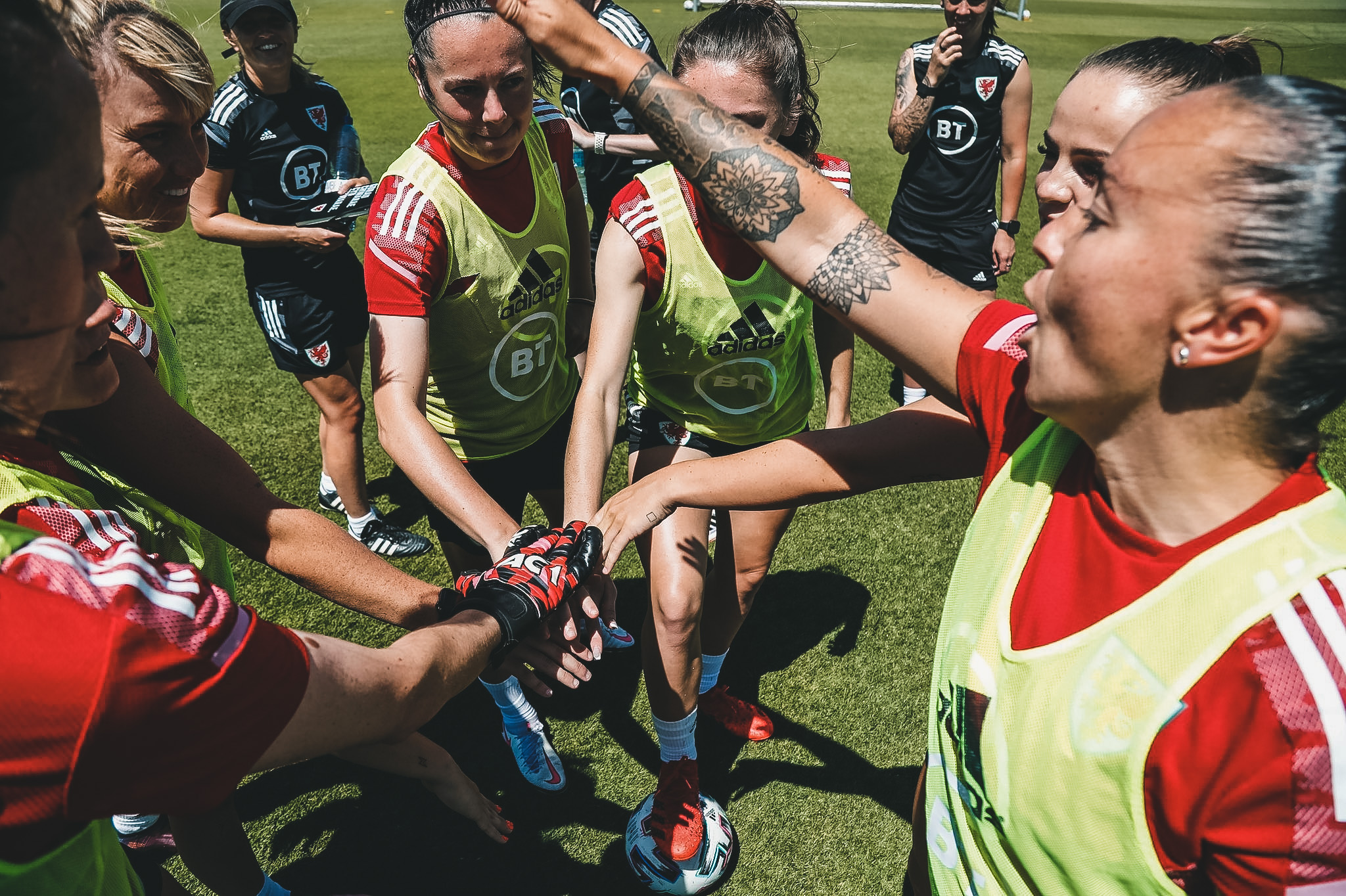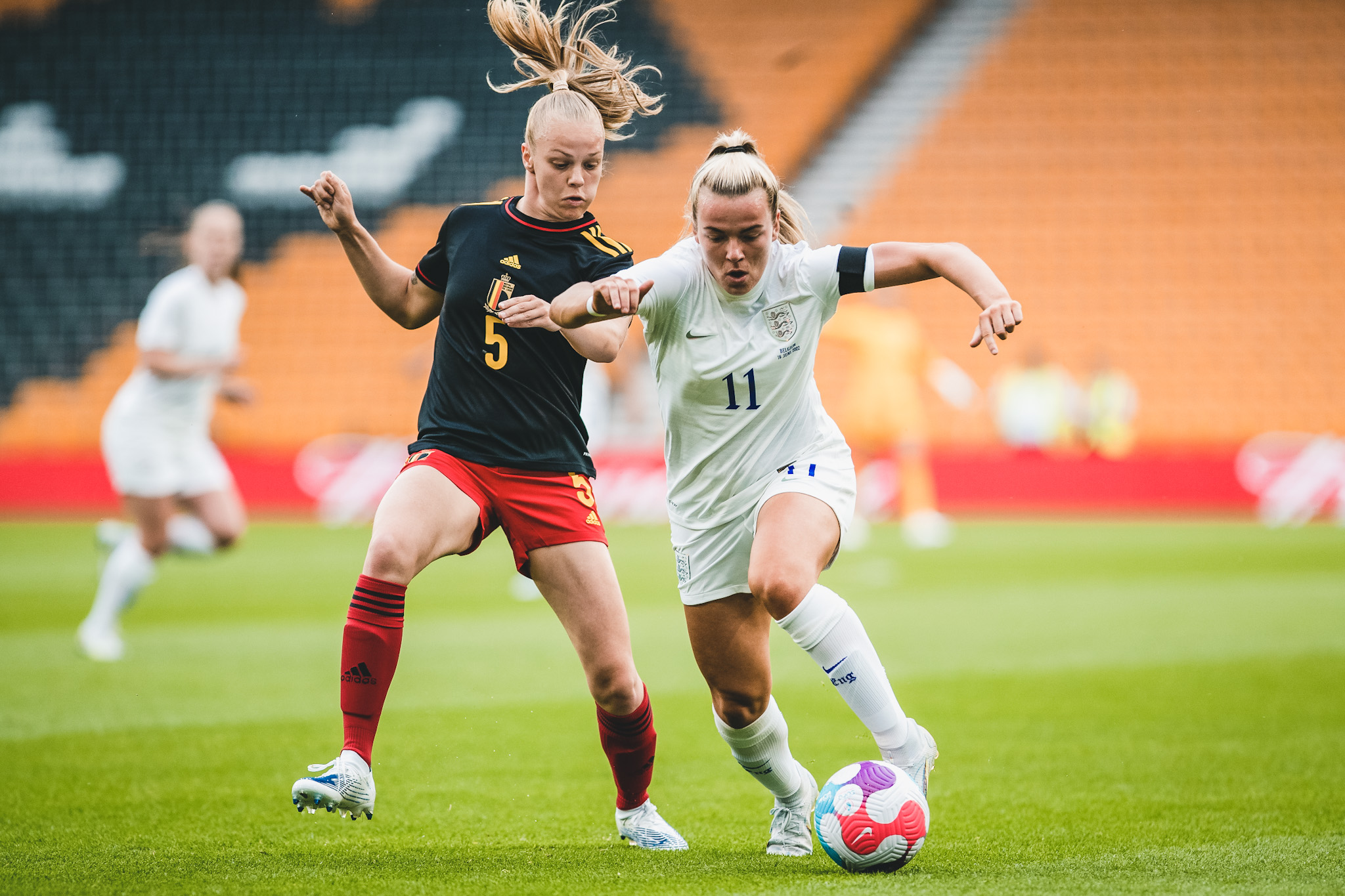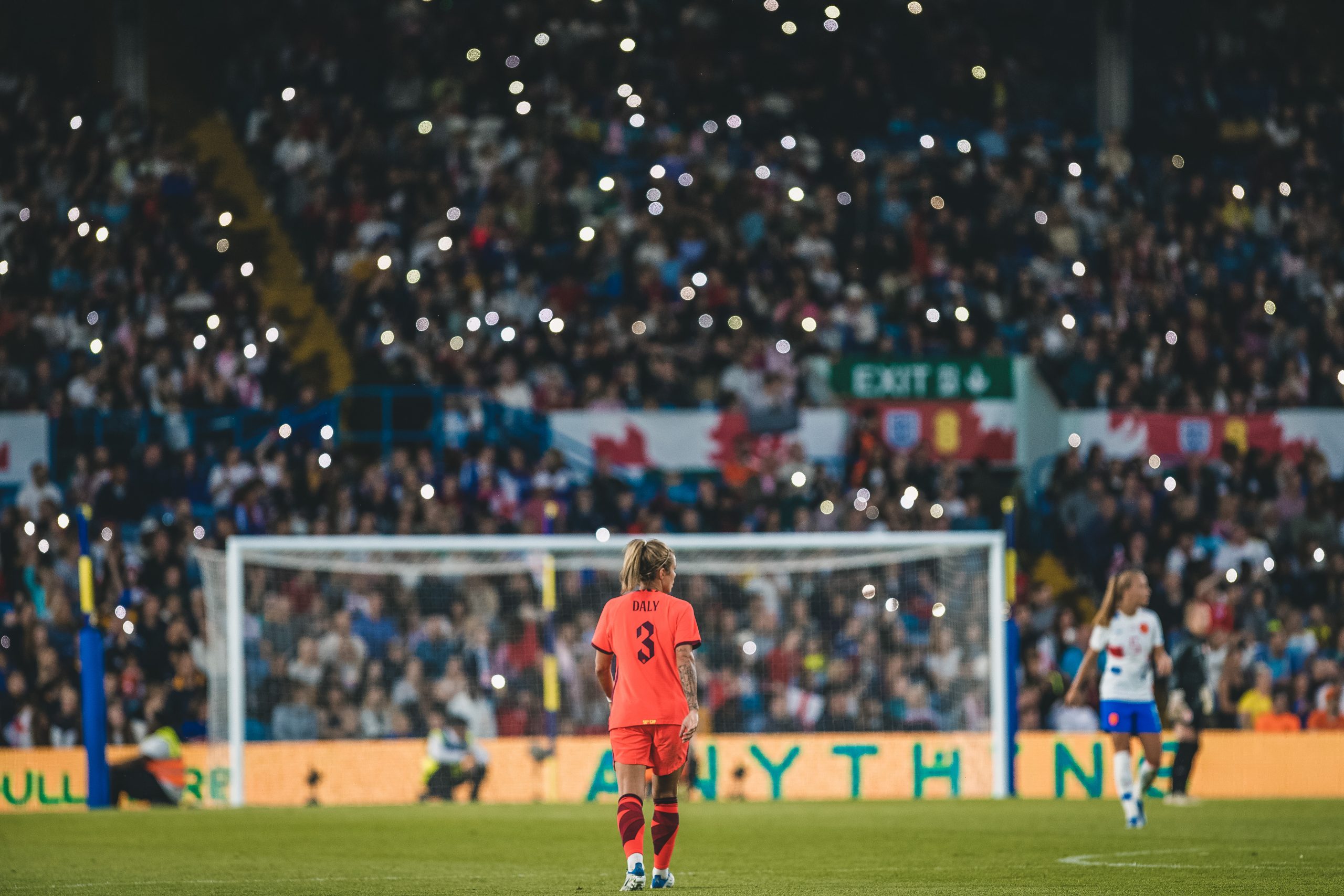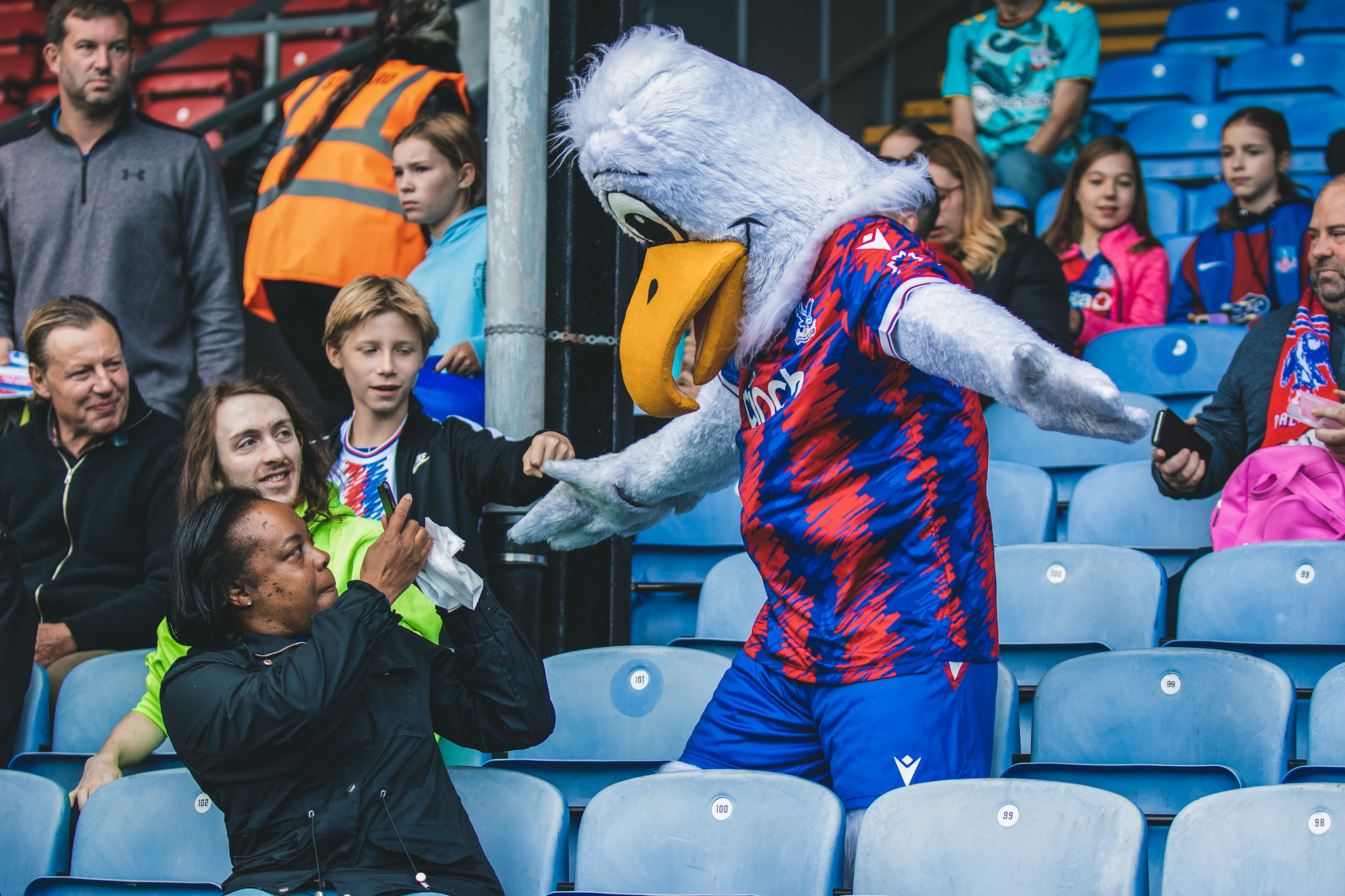Wales prepare to take on Greece and Slovenia in their final World Cup qualifiers, two games that could propel the game here to a level never seen before.
The European Championships held in June is something that will live long in the memory of many football fans. For England, obviously, their triumph will herald a new dawn for the game across the country. For Northern Ireland, it is their first exposure to a major tournament, a moment that will be etched in history and will inspire a whole new wave of footballers.
Before the new decade we can look at Scotland. Our Celtic friends set off on their first European adventure during the 2017 championships, and then backed it up by qualifying for the 2019 World Cup in France. Both times they played in England, and in 2017 beat Spain in the group stages. Matches and results that no doubt ushered in a whole new audience to women’s football.
In Wales, however, we don’t have tournaments to look back on. You see, the Football Association of Wales (FAW) only recognised the women’s team in Wales in 1992, thanks to lobbying by pioneers of the Welsh game like Laura McAllister and Michele Adams.
The first official team was put together for the qualifying stages of the 1995 European Championships. Although we didn’t win a game, we were playing Germany, Switzerland and Croatia, nations that had adopted women’s football far earlier than us. But for those players, it was finally the recognition that they had been yearning for. Wales were finally going in the right direction.
The years that followed were not very successful for the team in terms of qualification for tournaments. Wales would win the odd match here and there, but we weren’t competing with the teams at the highest level for sure.
In 2010 we saw the beginnings of a new age. The hiring of Finnish coach Jarmo Matikainen, the first and only non-British manager to take charge of Wales, was an indication by the FAW that they wanted to change. That they wanted a clear strategy to take the game to the next level.
Under Matikainen, youngsters were being embedded into the team. Results were getting better and there were more victories, but it still wasn’t quite right. After four years, the Fin stepped down and endorsed the FAW’s decision to hire Jayne Ludlow as his successor. Ludlow, a former Wales captain, would be in charge of a golden period of Welsh football.
A midfielder who won 61 caps for her country and numerous trophies, especially with her time as an Arsenal player, Ludlow adopted a style of play that was difficult for opposition teams to break down. Quickly, Wales had become very tough to beat, and it was playing into our hands.
Some remarkable results followed. A magnificent 3-0 victory over Russia and an incredible 0-0 draw against England in Southampton in qualification for the 2019 World Cup. Goalkeeper Laura O’Sullivan put in a performance that will go down as one of the greatest in a Welsh shirt.
Ludlow’s side rose into the top 30 in the FIFA World Rankings, and it looked like a major tournament was within touching distance.

However, one thing you should know about Welsh teams, especially the men’s team in the past, is when it comes down to crunch games, it doesn’t always go right.
I can rattle off numerous times when the men’s team missed out on major tournaments. Losing to Scotland in 1977, losing to Romania in 1993, losing to Russia in 2003 and losing to the Republic of Ireland in 2017.
The stories and the failures get passed down from one generation to the next, and there’s always a fear of what could go wrong will go wrong with Wales. Luckily for us, it never felt like that with the women’s team. With Ludlow at the helm and her style of play, we felt like the result will come and we would get over the line. Sadly, Ludlow and her side couldn’t hide from those old Welsh demons.
A 3-0 defeat at home to a full-strength England side, meaning we didn’t qualify for the 2019 World Cup. Then perhaps the biggest heartbreak. Two draws against Northern Ireland meant we finished behind them on goal difference and denied a place in Euro 2022. It was a difficult period, and a period that bought an end to Ludlow’s tenure. While she may never have taken Wales to a major tournament, she certainly laid so much of the groundwork for where Wales are now.
The departure of Ludlow understandably led to a lot of questions and perhaps a few worries. Would Wales regress from where we got ourselves to? In 2021, the FAW announced the appointment of Gemma Grainger.
Grainger had managed over 90 international matches for various England youth teams and was part of the England coaching staff when they reached the semi-finals of Euro 2017.
On paper, it certainly looked like an interesting appointment, but of course she would be judged on performances on the pitch, and my word the judgement is more than good.
Her attacking style is something we haven’t seen with Wales’ women’s teams. There’s a confidence going forward. Fullbacks and midfielders have licence to take on their opponents and cause problems, and it has worked wonders!
This qualifying campaign, we’ve beaten Kazakhstan 6-0 at home and 3-0 away, we’ve beaten Greece 5-0, we’ve beaten Estonia 4-0. These score lines were scarce for many Welsh teams down the years. Now, there’s a sense of expectation from fans that Wales easily brush aside some so called ‘lesser’ nations.
Perhaps the biggest thumbs up in terms of Wales’ style of play under Grainger are the games against France. Wales lost 2-0 out in Guingamp and then 2-1 in the return fixture in Llanelli. On both occasions, Wales had chances to draw and win these matches, and the team were disappointed not to get anything from those games.
THAT is how far we’ve come as a nation. The fact that there’s disappointment to not get any points against France shows how ambitious, talented, and hungry this team is.
And what a team it is. I could write a dissertation on how much the likes of Jess Fishlock, Tash Harding, Sophie Ingle, Helen Ward and Angharad James mean to this country. They have seen it all for Wales. From the era of still using the men’s team kit in the mid-2000s, to now the team having their own shirt.
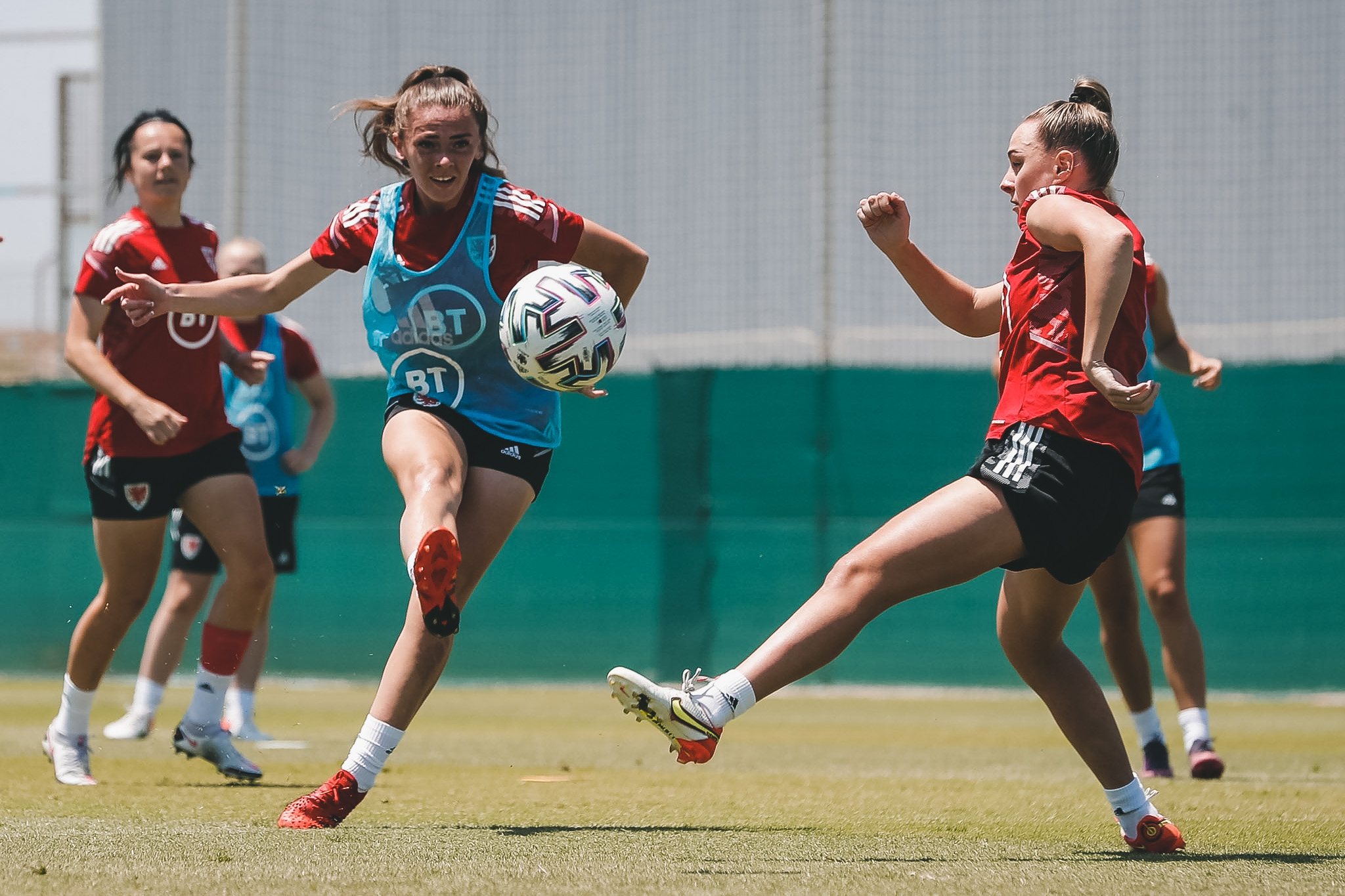
Each have won a century of caps (in James’ case two caps away from the hundred) and each have had an invaluable effect on Wales. When their careers wind down, they will go down in the pantheon of Welsh greats, alongside the likes of Gareth Bale and John Charles.
Perhaps the one thing that has been lacking with Wales is strength in depth. We knew our starting eleven for years. Now, Grainger has bought in competition and that depth is the best it’s ever been. Youngsters like Carrie Jones and Esther Morgan haven’t looked out of place, especially against the French.
Others like Lily Woodham, Ffion Morgan, Ceri Holland are names that could start any game for Wales, and there’s a good selection headache every game for Grainger.
Apart from the incredible players and the visionary young manager, another cause for optimism is the way the FAW are setting themselves, in terms of Welsh identity.
There’s a line in the Welsh anthem that reads; ‘O bydded i’r heniaith barhau!’. Its literal translation is ‘May the language endure forever!’, and this is something the FAW have really capitalised on.
The amount of Welsh language content has reached a new level. There’s a good bunch of players who are fluent Welsh speakers and before every game a song called ‘Yma o Hyd’ blasts out.
‘Yma o Hyd’ (translates to ‘Still Here’) is a song written by Dafydd Iwan (a Welsh singer) who describes that, even against all odds and nations, Wales and the Welsh language is still here, and still to be celebrated. On the back of this, there’s this wave of Welsh fans who feel a sense of connection to football that simply we don’t have with any other sport, including rugby.
We’re living in a perfect storm here. We have great players, an exciting manager, a fan base craving success, and an identity that fans can easily rally around, all the ingredients you need to build something very special.
And that leads us to this international window. Wales only need four points from a possible six to secure a spot in the World Cup playoffs, something that would set of a chain of dominos for the game here. A playoff spot leads to more interest, to higher attendance and more exposure to the wonderful Adran leagues (Welsh domestic football) and lead to more girls taking up football.
There are so many things to be excited about. And with the team on track to play in front of 10,000 people at the Cardiff City Stadium against Slovenia on Tuesday September 6th, the good times will just keep on rolling. Ymlaen Cymru!





